
Escherichia coli is a Gram-negative rod-shaped bacterium that normally inhabits the lower intestines of the warm-blooded organisms. In normal consequences, most of the Escherichia coli strains are benign. However, certain strains can cause serious food poisoning. Other strains live inside of the human body, as a natural part of normal flora of the gut. They may even be beneficial to the host, by producing vitamin K2 and preventing the overgrowth of other pathogenic bacteria.Diseases caused by Escherichia coli
Pathogenic strains of Escherichia coli can cause different types of diseases in humans, including gastroenteritis, urinary tract infections and even neonatal meningitis. The most dangerous strains are very rare but if the person becomes infected severe diseases such as haemolytic-uremic syndrome, peritonitis, mastitis, septicaemia and Gram-negative pneumonia, may occur.
Enterotoxigenic E. coli (ETEC) is leading causative agent for diarrhea in children in the developing world, and a common cause of traveler’s diarrhea. This infection causes more than 380,000 deaths yearly, and mostly in children. Enteropathogenic E. coli (EPEC) causes diarrhea in humans and some other animals, including dogs, cats, horses and rabbits. Enteroinvasive E. coli (EIEC) affects only humans and causes a syndrome identical to Shigellosis, characterized by diarrhea and high fever. Enterohemorrhagic E. coli (EHEC) causes bloody diarrhea and no fever, and can cause hemolytic-uremic syndrome and sudden kidney failure. Enteroaggregative E. coli (EAEC) also affects only humans causing watery diarrhea with no fever. Uropathogenic E. coli (UPEC) causes approximately 90% of urinary tract infections. The infection occurs when the bacteria colonize the urethra and spread up the urinary tract to the bladder, and up to the kidneys.Prevention of Escherichia coli infection
Escherichia coli is commonly found in recreational waters. If the laboratory tests determine a presence of the Escherichia coli, it means that the water is contaminated by feces. The contaminating feces may not be from humans, but also from birds and other warm-blooded animals. Very often, Escherichia coli is found in fish, turtles and other water animals.
Therefore, the best way to prevent Escherichia coli infection is to practice good personal hygiene and pay a lot of attention to the food supply chain. People should cook their food and make sure to avoid cross contamination by cleaning cutting boards and utensils that have been used during meal preparation and that have come into contact with uncooked foods. The food should be prepared at a core temperature of at least 160 degrees Fahrenheit for at least 15 seconds. People are also advised to avoid drinking or playing in non-chlorinated water.
- www.cdc.gov/ecoli/ecoli-prevention.html
- www.cdc.gov/ecoli/index.html
- Photo courtesy of Eric Erbe, digital colorization by Christopher Pooley, both of USDA, ARS, EMU by Wikimedia Commons: commons.wikimedia.org/wiki/File:E_coli_at_10000x.jpg







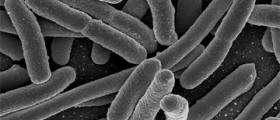
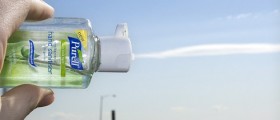


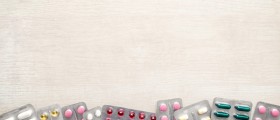
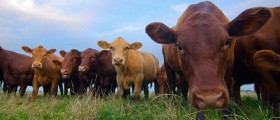
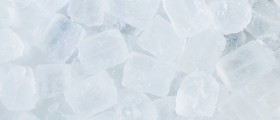
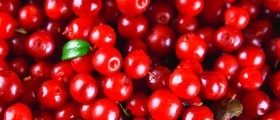


Your thoughts on this
Loading...